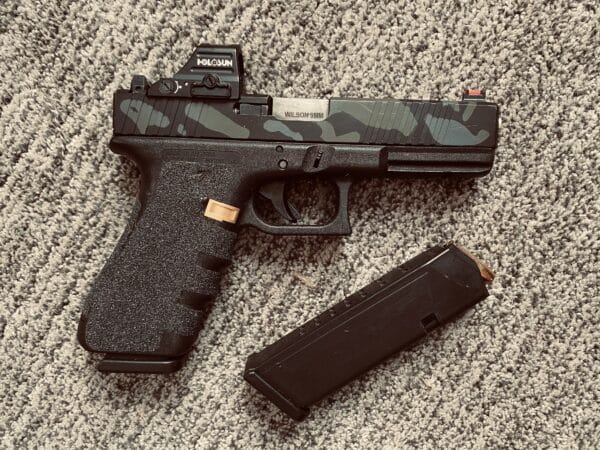Evaluating Red Dot Sights for Concealed Carry Pistols

The shift from traditional iron sights to red dots in concealed carry pistols has been a topic of increasing discussion among firearm enthusiasts. Initially viewed as unnecessary by some, many have begun recognizing the benefits of integrating these optics into their defensive shooting setups.
Understanding the Advantages of Red Dot Sights
Modern red dot sights have been designed specifically for defensive firearms, eliminating many earlier concerns regarding size and durability. Here are several key advantages that these optics can bring to concealed carry:
Enhanced Speed of Target Acquisition
One notable advantage of using red dots is the accelerated target acquisition. Unlike iron sights, where shooters must align multiple points while maintaining focus on the target, red dots simplify this process. Shooters only need to align the dot with the target, which can significantly enhance reaction times during high-stress situations.
Improved Accuracy
Red dot sights can increase shooter accuracy, particularly at longer ranges. Unlike traditional sights that require careful alignment of multiple reference points, the dot provides a solitary aiming point, facilitating cleaner shot placement. This feature is especially useful in low-light conditions where iron sights may be harder to see.
Better Situational Awareness
Using red dot optics allows for shooting with both eyes open, which helps maintain a broader field of view. This broader perspective can enhance situational awareness, as shooters are less likely to become focused solely on their front sight. The ability to see more of the environment can be crucial in defensive scenarios.
Accommodating Aging Eyes
As shooters age, vision can deteriorate, making it challenging to focus on traditional iron sights. Conversely, red dots provide a clear and illuminated aiming point that can reduce eye strain and age-related difficulties in sight alignment.
Considerations Against Using Red Dot Sights
Despite their advantages, there are notable considerations and potential drawbacks to using red dots for concealed carry pistols:
Cost Implications
High-quality red dot sights can be a significant investment, with prices ranging from approximately $300 for entry-level models to over $700 for premium versions. Additionally, if an optics-ready slide is not present, upgrades may require milling, which adds to the expense.
Battery Dependency and Maintenance
Unlike iron sights, red dots are battery-operated and thus necessitate regular maintenance. Although many modern models feature extended battery life and shake-awake functionality, periodic battery replacement is crucial to ensure reliability in critical moments.
Concealment Challenges
Adding a red dot to a concealed carry setup may increase the overall height of the firearm, which can complicate concealment, particularly with certain clothing styles. Moreover, not all holsters accommodate red dot optics, which may necessitate additional purchases for optimal concealment.
The Learning Curve
Transitioning to a red dot requires practice, as new users often face the challenge of locating the dot quickly upon drawing. Mastering the mechanics of maintaining target focus while using a red dot can take time and dedicated training.
Conclusion: Is a Red Dot Right for You?
Deciding whether to use a red dot sight for concealed carry hinges on individual needs and commitment to proficiency with the optic. Considerations include:
- Investing in a reputable optic brand (such as Holosun or Trijicon).
- Allocating time for training and practice with the new system.
- Having backup iron sights and ensuring the choice of a suitable holster.
Ultimately, the choice to incorporate a red dot sight into your concealed carry setup can lead to significant advantages in speed, accuracy, and situational awareness, making them a worthy consideration in modern defensive shooting.
About the Author
Scott Witner is a former Marine Corps Infantryman with extensive training in various combat environments. His experience in defensive shooting contributes to his insights on firearm capabilities and training methodologies.

